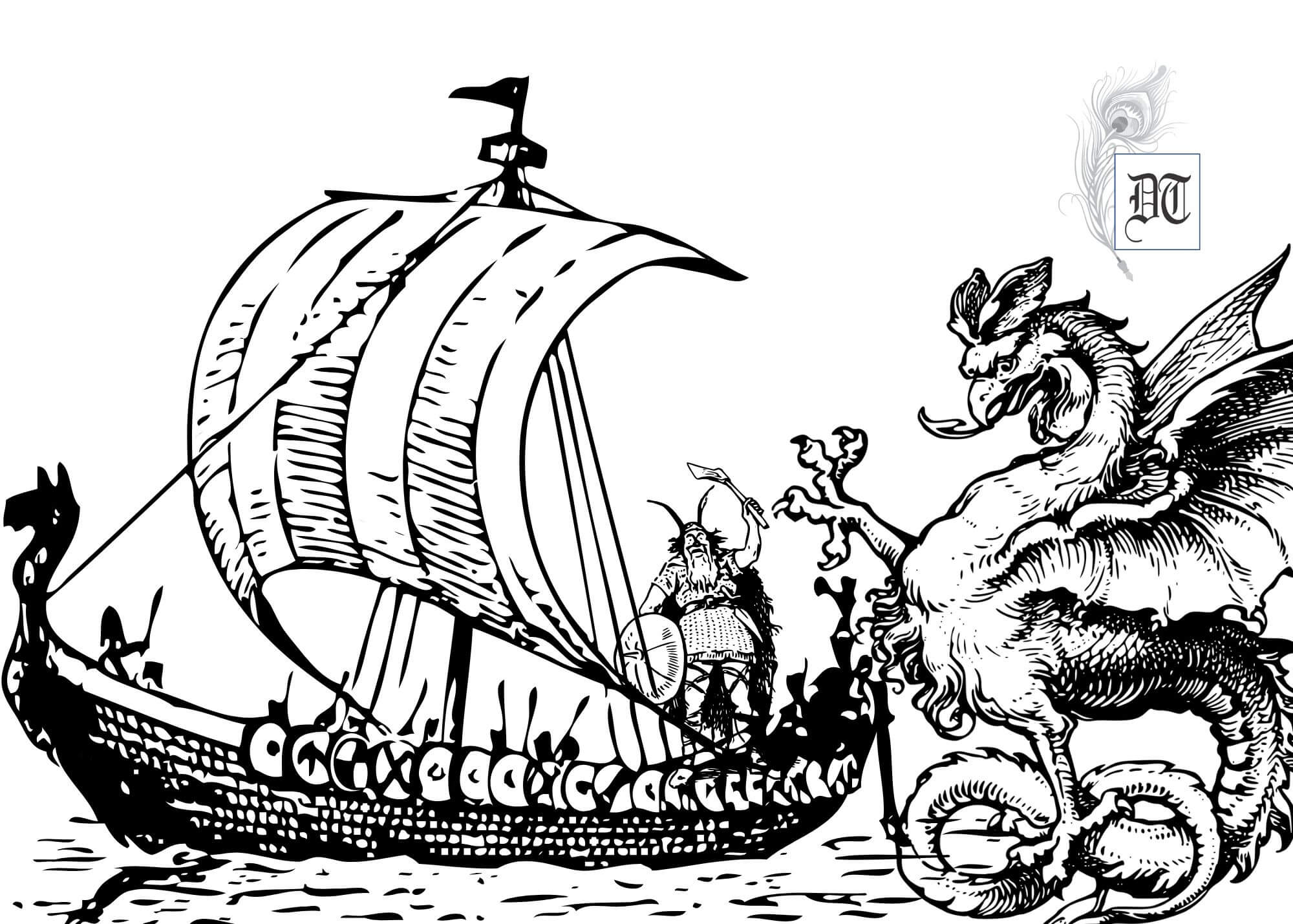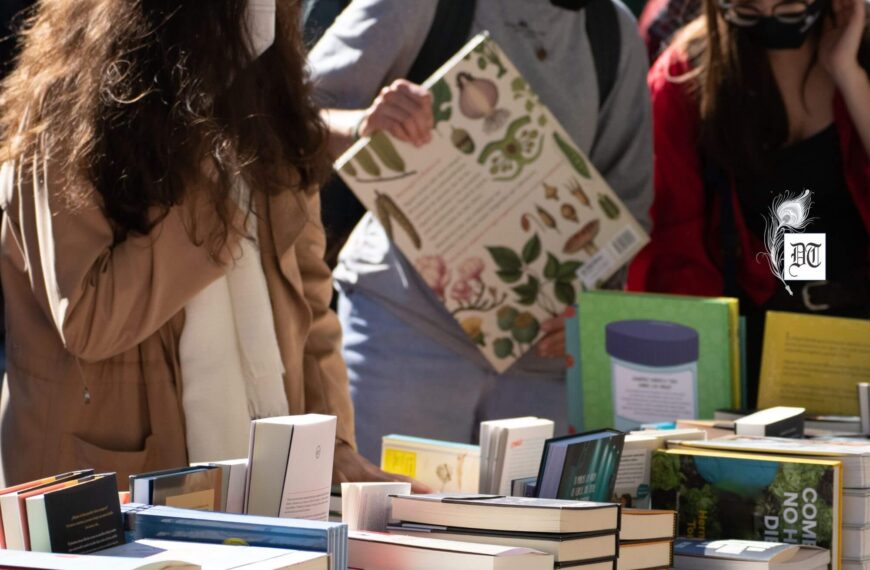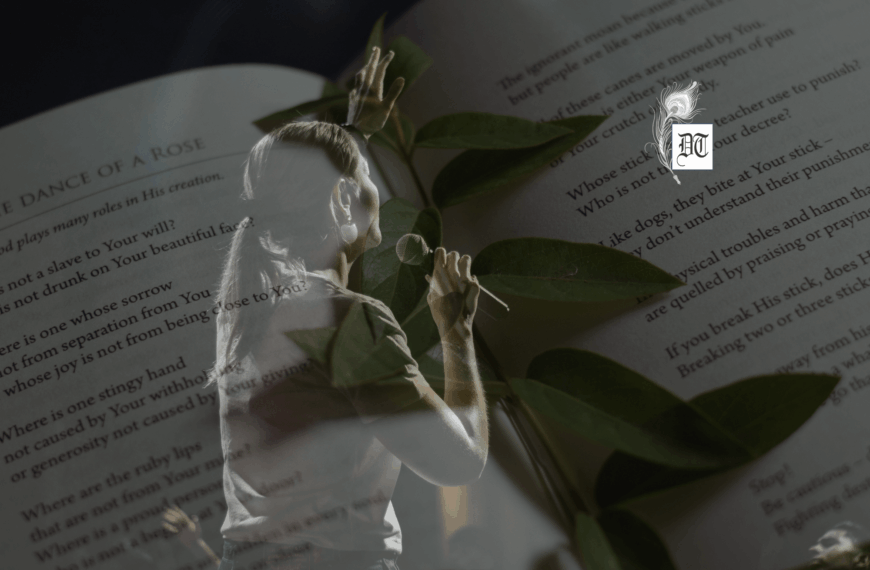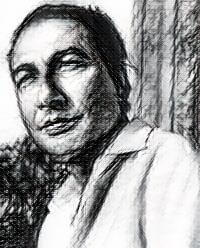Akash critiques Beowulf, an Old English epic poem, focusing on themes of heroism, fate, and the clash of pagan and Christian values, exclusively for Different Truths.
“Hwæt. We Gardena in geardagum,
Þeodcyninga, þrym gefrunon,
Hu ða æþelingas ellen fremedon.
Oft Scyld Scefing sceaþena þreatum…’’
It’s hard to understand the above-mentioned lines, right? Let me introduce you to the text of Beowulf.
The origins of English literature are veiled in uncertainty, largely due to the lack of written records from its earliest stages. It is, however, reasonable to surmise that oral compositions in verse existed long before written records, serving as a medium to preserve cultural heritage, convey heroic deeds, and impart moral lessons. Poetry, characterised by rhythm and alliteration, likely preceded prose due to its ease of memorisation and performance in an oral tradition.
Old English literature presents unique challenges to modern readers, primarily because of the significant linguistic differences between Old English and its contemporary counterpart. The vocabulary of Old English is predominantly native, with some early borrowings from Latin due to the influence of Roman Christianity and trade. The grammatical structure was far more intricate than that of modern English, featuring declensions of nouns, pronouns, and adjectives, alongside a complex verbal system. Despite these challenges, Old English literature endures through limited but representative works, preserved in four unique manuscripts. Among these, Beowulf—a monumental epic—stands as the most renowned and studied text, housed in the Cottonian collection under Cotton MS Vitellius A XV.
The epic tale of Beowulf opens in Denmark, where King Hrothgar has built a grand mead hall, Heorot, symbolising the prosperity and unity of his reign. However, this harmony is disrupted by Grendel, a monstrous being descended from Cain, cursed to eternal exile. Grendel terrorizes Heorot by invading it at night, slaughtering Hrothgar’s warriors, and consuming their flesh. For twelve years, the kingdom has lived under the shadow of despair.
News of Hrothgar’s plight reaches Beowulf, the son of Ecgtheow and a warrior of extraordinary repute among the Geats. Determined to prove his valour, Beowulf gathers 14 loyal warriors and sets sail for Denmark. Upon arrival, he is received with warmth and hope by Hrothgar, who entrusts him with the task of ending Grendel’s reign of terror. That night, as Grendel invades Heorot once more, Beowulf engages him in fierce hand-to-hand combat. Demonstrating superhuman strength and courage, Beowulf rips Grendel’s arm from his body, delivering a mortal wound. Grendel retreats to his locker, where he succumbs to his injuries.
The triumph, however, is short-lived. Grendel’s mother, seeking vengeance, launches an attack on Heorot, plunging the kingdom into peril once again. Beowulf, ever the hero, ventures into her underwater lair, a dark and treacherous place that serves as her refuge. Armed with a magical sword he discovers within the lair, Beowulf kills Grendel’s mother in a climactic battle, restoring peace to the kingdom. Hrothgar rewards Beowulf generously, and the Geatish hero returns to his homeland, celebrated as a saviour.
The narrative then shifts decades into the future. Beowulf, now a wise and just king, rules Geatland for fifty years. His reign is threatened when a dragon, provoked by the theft of a treasured cup, begins to ravage the countryside, burning villages and sowing fear among his people. Despite his advanced age, Beowulf resolves to face the dragon, fully aware that this battle might claim his life. In a poignant display of loyalty, his young companion Wiglaf joins him, while the other warriors flee in fear. Together, they slay the dragon, but Beowulf is mortally wounded in the struggle. His death marks the end of an era, and his kingdom mourns the loss of their beloved leader.
Beowulf is a richly layered text that explores timeless themes that resonate with its audience across centuries. Central to the poem is the theme of heroism, embodied in Beowulf’s unwavering courage, selflessness, and sense of duty. His battles against Grendel, Grendel’s mother, and the dragon highlight the heroic ideal of facing insurmountable odds with honour and resilience.
Another key theme is the concept of wyrd or fate, which reflects the Anglo-Saxon worldview. Beowulf frequently acknowledges that his life and victories are subject to the will of fate, blending humility with confidence. This interplay between free will and destiny underscores the inevitability of mortality, a recurring motif in the poem.
The duality of pagan and Christian elements is another hallmark of Beowulf. While the poem originates from a pagan warrior culture, the surviving version incorporates Christian ideology, mirroring the transitional period in which it was written. References to the Christian God, divine judgment, and the afterlife coexist with pagan values such as vengeance, honour, and loyalty to one’s lord. This synthesis creates a complex cultural tapestry, reflecting the religious and social transformations of early medieval England.
The artistry of Beowulf lies in its masterful use of poetic devices that elevate the narrative. Alliteration, a hallmark of Old English poetry, enhances the rhythmic quality of the verse, making it more memorable and impactful in oral recitation. Kennings, or metaphorical compounds such as “whale-road” (sea) and “ring-giver” (king), enrich the imagery and demonstrate the linguistic creativity of the time. The use of vivid and evocative descriptions immerses readers in the world of Beowulf, from the grandeur of Heorot to the desolation of the dragon’s lair.
The poem’s narrative structure adheres to the archetypal hero’s journey, chronicling Beowulf’s rise, his trials, and his ultimate sacrifice. This structure not only highlights Beowulf’s development as a character but also serves as a moral allegory, emphasising virtues such as bravery, loyalty, and the acceptance of mortality.
Beowulf is more than a literary masterpiece; it is a window into the cultural and social values of early medieval England. The poem captures the ethos of a warrior society, where loyalty to one’s lord, kinship ties, and the pursuit of glory are paramount. At the same time, it reflects the gradual shift from paganism to Christianity, offering insights into the spiritual and ideological transformations of the era.
The influence of Beowulf extends beyond its historical context. As one of the earliest surviving works of English literature, it has shaped the development of the epic genre and inspired countless subsequent works. The themes of the hero’s struggle against formidable foes, the tension between personal ambition and communal responsibility, and the inevitability of mortality continue to resonate in modern literature and media.
Beowulf endures as a cornerstone of English literature, blending myth, history, and moral allegory to create a timeless narrative of heroism and humanity. Its exploration of universal themes, coupled with its innovative use of poetic devices, ensure its place as a seminal text in the literary canon. As a bridge between ancient and medieval traditions, Beowulf not only preserves the cultural heritage of its time but also invites contemporary audiences to reflect on the enduring nature of human struggles and triumphs.
Picture design by Anumita Roy






 By
By
 By
By

The depth of your analysis is truly remarkable…🙏🏻
Excellent 💖💖💖✨️✨️✨️✨️
Informative Son. 🍬
Congratulations on your second publication from DT. ❤️